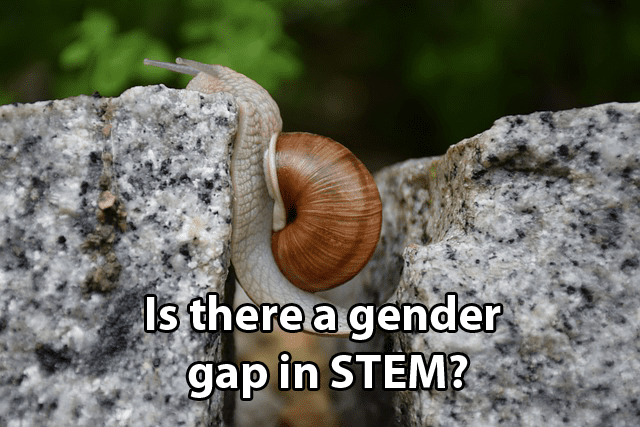
The Next Generation of Innovators: Women in STEM Scholarships
The critical role of women in the fields of science, technology, engineering, and mathematics (STEM) is increasingly being recognized worldwide. Encouraging more women to enter and thrive in these areas is essential for fostering innovation and diversity. One direct way to promote gender equality and empowerment in STEM is through scholarships. Scholarships play a pivotal role in breaking down financial barriers that women might face in pursuing education and careers in STEM fields.
Women in STEM scholarships not only provide financial assistance but also serve as a beacon of opportunity, empowering young women to follow their dreams in sectors where they have historically been underrepresented. Encouraging this demographic to pursue STEM careers can lead to groundbreaking discoveries and advancements that benefit society at large. By supporting women through scholarships, educational institutions, governments, and organizations underscore the importance of diversity and inclusion in fostering innovation and problem-solving.
One notable scholarship program is the "$500 Agricultural Studies Grant in Brazil, 2024," which specifically aids women pursuing agricultural studies. Agriculture is a critical area that intertwines with multiple STEM fields, including environmental science, biology, and engineering. By supporting women in this field, the scholarship helps to nurture female innovators who can contribute to sustainable agriculture and food security, which are crucial global challenges.
Another significant scholarship, the "Full and Merit SRMC Shine Scholarships for International Students in Singapore, 2018-2019," provides opportunities for women around the world to pursue their studies in Singapore. These scholarships help bridge educational gaps and enable a diverse group of talented individuals to engage in sophisticated STEM programs. Singapore, a hub of innovation and technology, offers a rich environment for aspiring female STEM students to gain qualifications, experience, and networking opportunities.
Scholarship programs like these not only provide financial support but also often include mentorship opportunities, workshops, and networking sessions. Such elements are crucial in building a robust support system for women in STEM, enabling them to tackle challenges more effectively and fostering a collaborative environment. Mentorship can particularly help women navigate career paths, seek advice on academic and professional challenges, and develop leadership skills crucial for pioneering roles in STEM fields.
Diversifying the STEM field with increased female participation can lead to more comprehensive research outcomes and technological innovations. Women bring unique perspectives that can lead to creative solutions and approaches. Diverse teams have been shown to foster greater creativity, which is paramount in STEM fields characterized by rapid change and requiring innovative responses to complex global issues.
Despite progress, many obstacles remain for women in STEM. Gender bias, disparities in pay, and lack of representation in leadership roles are some challenges women often face. However, the availability of scholarships plays a crucial role in tackling these issues. By offsetting the costs of education and providing equitable access to resources, scholarships help level the playing field and allow women to compete on equal footing.
Educational institutions and governments are not the only entities finding solutions to these disparities. Private organizations and non-profits are also raising awareness and funds to support women in STEM. Collaborations between these stakeholders can result in broader reach and effectiveness of scholarship programs. Investing in women in STEM holds the potential to generate sustainable economic growth and positive societal changes.
Additionally, the necessity of scholarships extends beyond undergraduate studies. Graduate and postdoctoral scholarships are also paramount for women pursuing advanced research and academic roles. Such scholarships enable women to delve deeper into scientific inquiry, contribute to cutting-edge research, and occupy prestigious positions in academia and industry. This creates role models for future generations, emphasizing the feasibility and importance of women leading in STEM.
For students considering a career in STEM, awareness of available scholarships is critical. They should explore various scholarship opportunities that align with their academic interests and career goals. Factors to consider include eligibility criteria, financial benefits, application processes, and additional opportunities during the scholarship period, such as internships or international exposure.
In conclusion, women in STEM scholarships are more than financial assistance; they are investments in a brighter, more inclusive future. They embolden women to challenge industry norms, lead research endeavors, and contribute meaningfully to technological and scientific progress. By expanding their scope and reach, these scholarships will continue to pave the way for the next generation of female innovators, ensuring that their contributions continue to shape a more equitable and prosperous world.


















Scholarship for studying Forest science
I’m unable to browse the web or access external websites directly. However, I can provide general information about scholarships for studying Forest Science.
University Scholarships: Many universities that offer programs in Forest Science provide their own scholarships. Look into the schools you are interested in for specific scholarships for their forestry programs.
Professional Organizations: Organizations such as the Society of American Foresters or the International Society of Arboriculture often offer scholarships for students pursuing degrees in forestry or related fields.
Government Scholarships: Some government agencies provide scholarships or financial aid for students in environmental science programs, which can include Forest Science.
Environmental NGOs: Some non-governmental organizations focused on environmental conservation offer scholarships to support education in fields related to their mission.
Industry Sponsors: Companies in the forestry industry may offer scholarships to students who are potentially interested in working in the industry after graduation.
Pick A Scholarship Resources: You can use platforms like Pick A Scholarship to search for specific scholarships related to Forest Science by filtering based on subject and level of study.
For detailed information and the application process for these scholarships, checking the specific resources and institutions would be the next step.